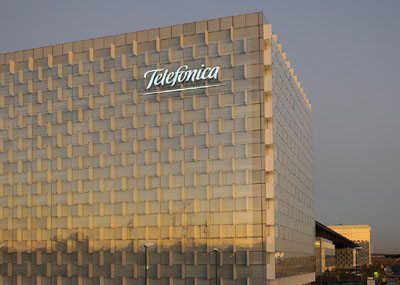Two major telecommunications vendors announced they have been selected by Telefónica to deploy part of the carrier’s infrastructure. Huawei will complete a software-defined networking-based IP/optical field trial with Telefónica Peru, while several units of the Spanish telco will use Cisco ASR series routers for converged metro Ethernet network and IP backhaul.
The SDN project in Peru began a year ago with a proof of concept lab test. According to Huawei, it’s the industry’s first SDN-based IP/optical field trial, and the success of this trial is a key step to finally commercializing the solution. The Chinese vendor said that the field trial network will progress into a real traffic, pilot phase and finally, to commercial deployment.
As for Cisco, the U.S.-based vendor announced that it’s helping Telefónica address growth through converged infrastructure that aims to optimize service delivery with flexibility, robust IPv6 support and carrier Ethernet capabilities.
Telco numbers in Colombia and Peru: Colombia ended 2014 with 1.13 million LTE connections, and 3.75 million 3G subscriptions. However, the majority of the 5 million broadband connections in Colombia are still made through fixed connections. There were 9.89 million broadband connections at the end of 2014. Mobile lines totaled 55 million with prepaid lines accounting for 80% of that number.
In Peru, the newest carriers gained market share and ended 2014 with a combined share of 6.4%. Movistar’s share declined slightly from 55.3% to 54.4%, while Claro dropped from 39.6% to 39.2%, according to Osiptel. Mobile lines totaled 31.8 million, an increase of 6.4% compared to 2013.
More news from the Latin American region:
Ecuador: Movistar, which is owned by the Spanish group Telefónica, is set to invest $150 million in the country to foster 3G and 4G networks.
Mexico: The amount of customers who asked for number portability decreased in the first quarter of 2015 in comparison to the fourth quarter of 2014. This year, 100,000 fewer users, both mobile and landline, kept their numbers while changing operators.
Region: The NEC signed a memorandum of understanding with the Inter-American Development Bank to collaborate on the development of data centers in Latin America and the Caribbean. The organizations aim to produce a joint study on the use of data centers as a means for improving quality of life, security and governance.
Global: Telefónica announced that its investment in innovation and development increased 6% to $1.2 billion in 2014 compared to the $1.14 billion spent in 2013.
Guatemala: Tigo launched a partnership with Facebook’s Internet.org initiative, following similar partnerships with local Tigo operations in Paraguay, Tanzania and Colombia. Through the collaboration, Tigo’s customers will have access to a number of popular services without any data charges via the Internet.org app.
Wondering what’s going on in Latin America? Why don’t you follow me on Twitter? Also check out all of RCR Wireless News’ Latin American content.

